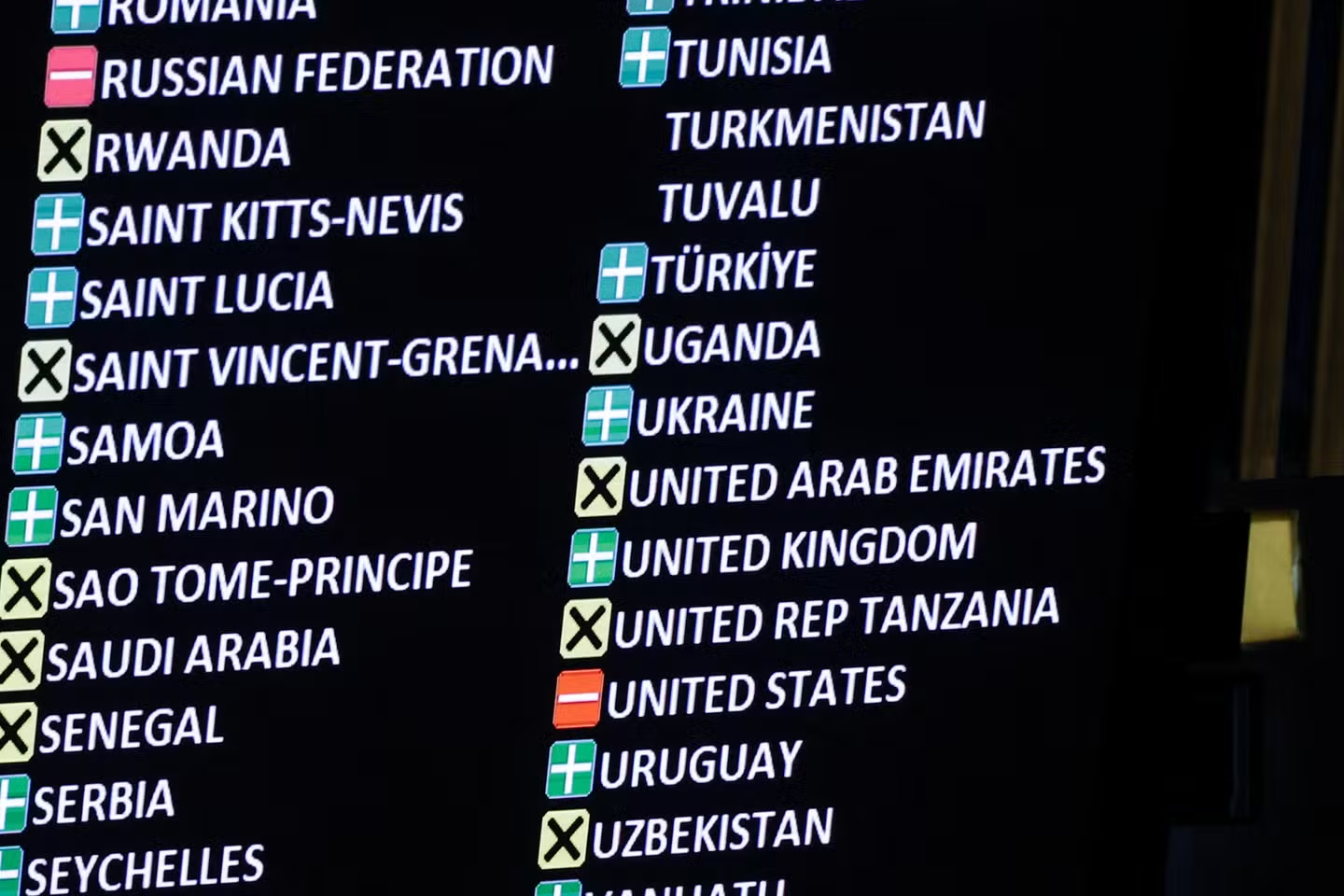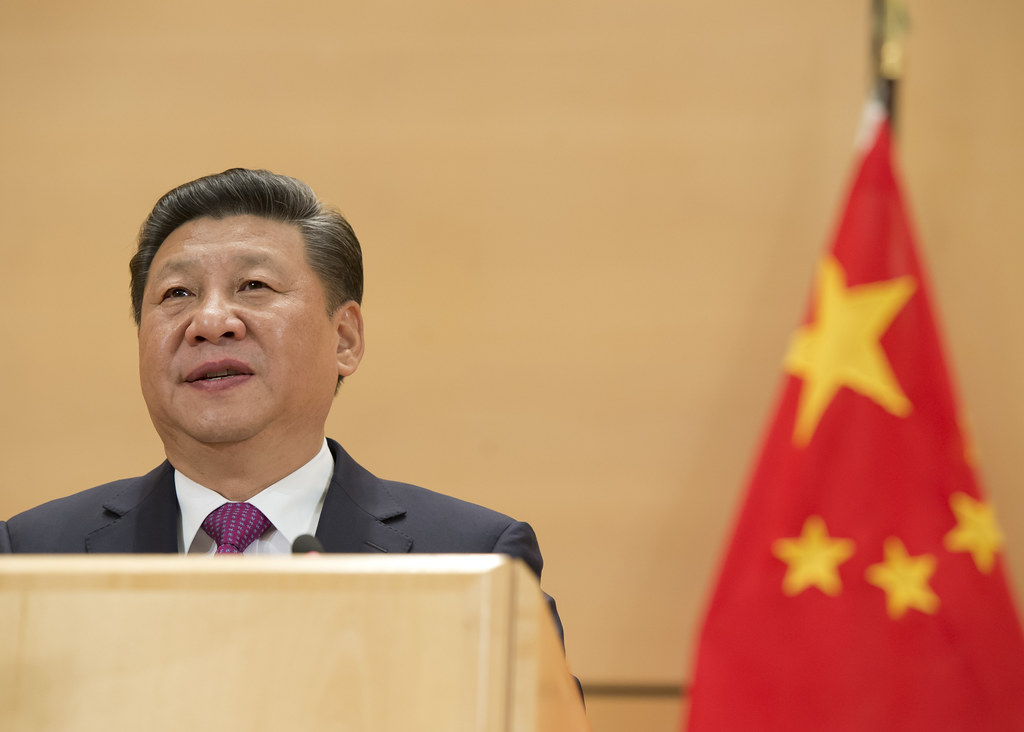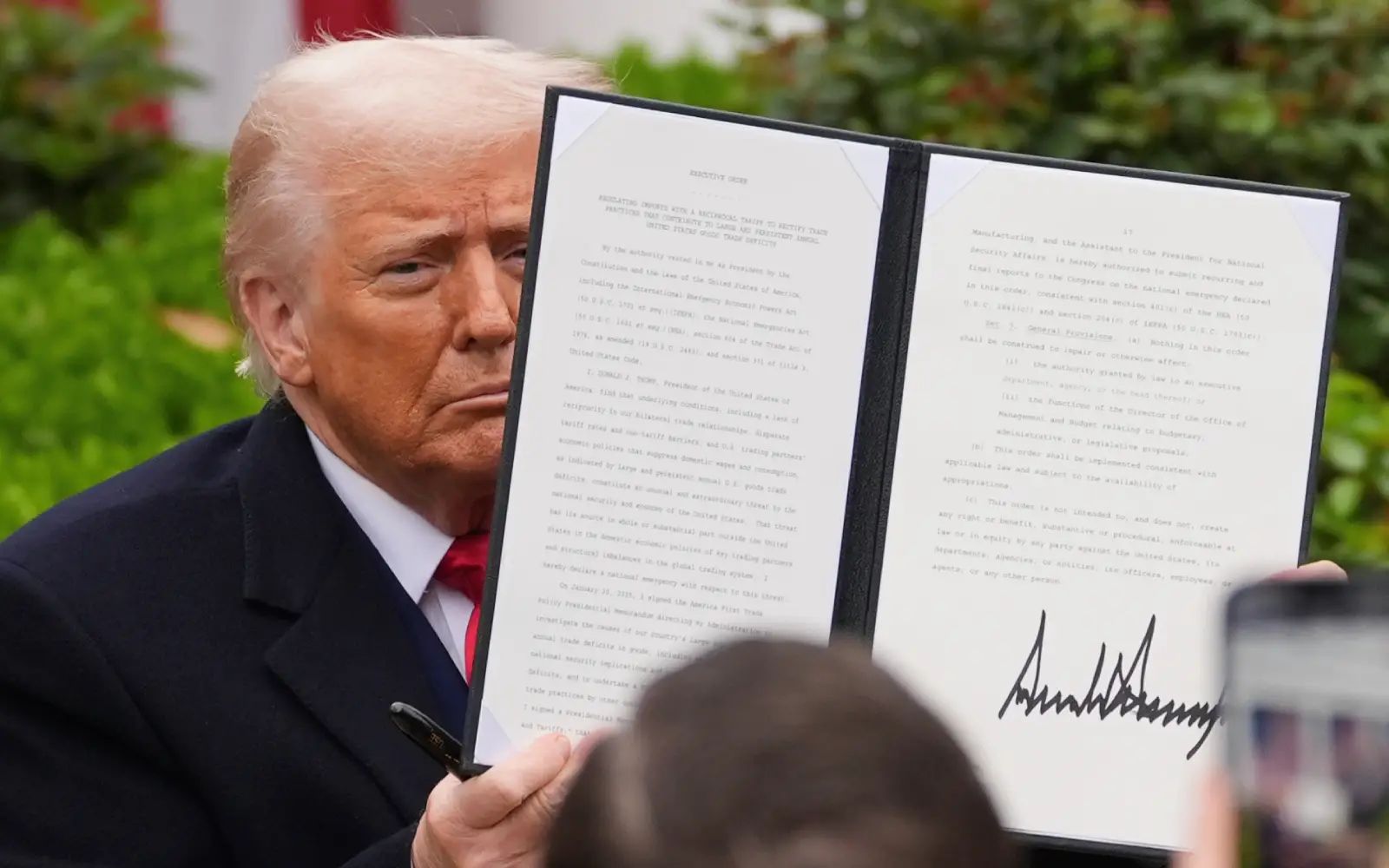A Seismic Shift in U.S. Foreign Policy
In a decision that has shattered diplomatic norms and sent shockwaves through the international order, the United States has voted against a United Nations resolution condemning Russia’s invasion of Ukraine. This marks the first time since the Cold War that Washington has actively opposed a Western-backed resolution targeting Moscow. The vote, held on March 24, 2025, at the U.N. General Assembly, places the U.S. in alignment with Russia, China, and North Korea, raising urgent concerns that President Donald Trump is fundamentally redefining the United States’ role in global politics.
For over seven decades, the U.S. has positioned itself as the primary force against Russian territorial expansionism, leading the charge in economic and military responses to Moscow’s aggression. The vote to oppose a resolution calling for Russia’s withdrawal from Ukraine not only weakens NATO unity but signals a deliberate pivot away from Washington’s historical alliances. The decision has prompted widespread backlash from European leaders, intensified divisions within the Western bloc, and fueled speculation that the U.S. may be moving toward a policy of economic cooperation with Russia, prioritizing rare earth mineral access over democratic values.
Trump’s Justification: Peace Talks or a Cover for Strategic Alignment?
President Trump justified the vote by calling the resolution “pointless,” arguing that it would “prolong the war by antagonizing Russia instead of negotiating peace.” This explanation reflects his long-standing skepticism toward NATO’s strategy, which he has repeatedly dismissed as “reckless warmongering.” Since the beginning of the war in 2022, Trump has insisted that the U.S. should “step back” from what he considers “Europe’s conflict.” His administration’s new stance signals a sharp break from previous bipartisan support for Ukraine.
However, Trump’s rhetoric does not align with his administration’s actions behind the scenes. Reports surfaced shortly after the vote that Russia is offering to sell rare earth minerals to the United States, including from occupied Ukrainian territories. If these reports are accurate, the U.S. vote against the resolution is not simply about de-escalation but economic self-interest. Washington may be willing to accept Russian control over Ukrainian land in exchange for securing critical mineral supplies. These resources are essential for manufacturing advanced technologies, including military defense systems, semiconductors, and electric vehicle batteries.
Trump has yet to comment publicly on the potential U.S.-Russia rare earth deal, but foreign policy analysts warn that this shift is part of a transactional approach to diplomacy. Rather than upholding its long-standing alliances, the U.S. is signaling to the world that it will prioritize economic advantages, even at the cost of legitimizing military occupation and war crimes.
A Historic Vote: The U.S. Joins Russia and China at the U.N.
The vote breakdown at the U.N. General Assembly highlighted the stark divisions in global power politics.
The European Union, the United Kingdom, Canada, Japan, Australia, and most of Latin America voted in favor of the resolution, reaffirming their stance that Russia’s invasion is an illegal act of war that violates international law and Ukraine’s sovereignty.
The United States, Russia, China, North Korea, and Hungary voted against the resolution, a move that has been widely interpreted as a direct endorsement of Moscow’s ongoing occupation of Ukrainian land.
India, Brazil, South Africa, Israel, and the UAE abstained from the vote, continuing their policy of neutrality, a stance that has frustrated Western nations seeking stronger global condemnation of Russia.
By aligning with Russia, China, and North Korea—nations historically regarded as America’s geopolitical adversaries—the U.S. has undermined decades of foreign policy, weakened global security frameworks, and raised fundamental questions about whether it still stands with democratic allies.
NATO in Crisis: Will Europe Be Forced to Stand Alone?
The immediate fallout from this vote has been political upheaval in Europe, where trust in U.S. leadership is collapsing. French President Emmanuel Macron described the decision as “a betrayal of everything NATO stands for,” warning that the alliance itself is now in jeopardy.
German Chancellor Olaf Scholz was even more blunt, stating that “Europe must prepare for a future in which the United States is no longer a reliable ally.”
For NATO, this moment represents an existential crisis. The alliance was formed in 1949 to counter Soviet expansionism, and for decades, U.S. leadership was the cornerstone of European security. If the United States is now unwilling to support even diplomatic condemnations of Russian aggression, European nations are left with two options:
- Continue relying on a U.S.-led NATO, hoping this is a temporary shift in policy.
- Take full control of their own defense, potentially forming an independent EU military force.
In response to growing fears of U.S. abandonment, NATO Secretary General Jens Stoltenberg convened an emergency summit to discuss the long-term implications of Washington’s pivot toward Russia. European officials are now openly discussing the need for an EU-led military coalition—something that would have been unimaginable before the Ukraine war.
What Happens to Ukraine Now?
Ukraine, which has relied on billions in U.S. military aid to resist Russian forces, now faces a dangerously uncertain future.
President Volodymyr Zelensky was quick to denounce the U.S. vote, stating that “those who refuse to condemn Russia are complicit in its crimes.” His government is now racing to secure long-term commitments from European nations, realizing that the U.S. may no longer be a reliable backer.
Without U.S. support, Ukraine’s ability to sustain its defense becomes far more difficult. There is now growing speculation that Ukraine may be forced into negotiations with Russia—on Putin’s terms. If Ukraine is abandoned diplomatically and militarily, Moscow could solidify its territorial gains, setting a precedent for future Russian invasions elsewhere.
The Broader Consequences: The End of U.S. Global Leadership?
Beyond Ukraine, this vote may represent a turning point in global power dynamics. The U.S. decision to side with Russia sends a message that Washington is no longer committed to defending democracy against authoritarian expansionism.
This emboldens not just Putin but other authoritarian leaders worldwide. China, which has its own ambitions in Taiwan and the South China Sea, will see this as a signal that the U.S. is unwilling to confront military aggression.
Similarly, countries like Iran and North Korea may now believe that they can act with impunity, knowing that Washington’s commitment to its allies is no longer guaranteed.
For over seventy years, U.S. foreign policy was built on opposing territorial expansion through force. The vote against condemning Russia’s invasion of Ukraine shatters that principle.
A Realignment of Global Power
The consequences of this decision will not be immediate, but they will be far-reaching and irreversible.
If Trump’s administration is truly shifting U.S. foreign policy toward economic deals with authoritarian regimes, it will mark the end of America’s global leadership. Europe will be forced to redefine its own security framework. Ukraine may have no choice but to negotiate from a position of weakness. Russia will be emboldened, and other authoritarian states will push the limits of military aggression.
History will remember this vote not just as a political decision but as a moment when the world order itself began to shift.













